This article was medically reviewed by Luba Lee, FNP-BC, MS. Luba Lee, FNP-BC is a Board-Certified Family Nurse Practitioner (FNP) and educator in Tennessee with over a decade of clinical experience. Luba has certifications in Pediatric Advanced Life Support (PALS), Emergency Medicine, Advanced Cardiac Life Support (ACLS), Team Building, and Critical Care Nursing. She received her Master of Science in Nursing (MSN) from the University of Tennessee in 2006.
There are 8 references cited in this article, which can be found at the bottom of the page.
This article has been viewed 30,086 times.
Over-the-counter and prescription sleeping pills can cause side effects such as next day sleepiness, drowsiness, lack of focus, dizziness, poor-coordination, blurred vision, dry mouth, constipation and urinary retention, headaches, nausea, unusual dreams, depression, and impaired performance in skills such as driving.[1] You can best manage your sleeping needs by using the lowest effective dose of a sleeping pill while incorporating non-pharmacological methods of managing insomnia over the long-term. However, if you are taking sleeping pills and your side effects become severe, contact your doctor immediately. By exercising, drinking plenty of fluids, eating a balanced diet, and by avoiding caffeine, alcohol, and tobacco you may be able to manage a majority of these symptoms.
Steps
Treating Multiple Side Effects
-
1Exercise regularly. Exercise can help you manage constipation, depression, a lack of attention or focus, and fatigue/drowsiness. Manage these side effects by getting at least 150 minutes of moderate aerobic exercise per week. Moderate aerobic exercise includes swimming, brisk walking, and biking.[2]
- For example, bike for an hour three times a week after work, or take a 30-minute brisk walk four to five times a week during your lunch break.
-
2Drink plenty of fluids. Drinking plenty of fluids, such as water, can help you manage constipation and urinary retention, dry mouth, headaches and dizziness. It is recommended that men drink 13 cups (3 liters) and women drink 9 cups (2.2 liters) of water per day.[3]
- Sucking on ice chips and chewing on sugarless gum may also alleviate a dry mouth.
Advertisement -
3Eat a balanced diet. A balanced diet consists of fruits and vegetables, milk and dairy products, healthy meats such as fish and chicken, and healthy starches (potatoes, bread, pasta). Try to stay away from foods that are high in sugar and unhealthy fats.[4]
- Eating a balanced diet will help your body manage many, if not all, of the side effects associated with sleeping pills.
-
4Avoid caffeinated beverages, alcohol, and tobacco. Caffeine, alcohol, and tobacco can exacerbate side effects such as dry mouth, headaches, and dizziness. These substances may also worsen your ability to focus and remember things.[5]
- Never consume alcohol after taking a sleeping pill. Not only will the alcohol disrupt your sleep, it will also increase the sedative effect of the sleeping pill, creating a dangerous and possibly fatal combination.
Treating Specific Symptoms
-
1Sleep for at least eight hours to prevent drowsiness. Drowsiness is a common side effect of both over-the-counter and prescription sleeping pills. To manage drowsiness, only take your pills on the nights where you are able to get at least eight hours of sleep.[6]
- Before taking your pills, make sure to complete your nightly activities and use the restroom. This way, you can prevent having to get up during the night to use the restroom.
- Brief naps during the day may also help drowsiness.
-
2Include high-fiber foods in your diet to prevent constipation. These include foods such as raspberries, apples, pears, artichoke, peas, broccoli, lentils, black beans, whole-wheat pasta, barley, oats, and bran.[7]
-
3Alleviate symptoms of depression with vitamin B12 supplements. It is recommended that you get 2.4 micrograms of vitamin B12 daily. Eating foods high in vitamin B12 may alleviate symptoms of depression as well.[8]
- Foods high in vitamin B12 are beef, turkey, chicken, salmon, trout, clams, prawns, snapper and eggs
-
4Use eye drops to treat blurred vision. Blurred vision is usually a symptom of dry eyes. You can treat dry eyes with over-the-counter eye drops. If the dryness is severe, then contact your eye doctor to get prescription eye drops.[9]
- Through an eye exam, your eye doctor can also determine if an underlying eye issue, exacerbated by the sleeping pills, is causing dryness and blurred vision.
-
5Take your medication with milk or food to reduce nausea. Do this unless directed otherwise. This may help reduce any nausea you may be experiencing. Additionally, try to avoid heavy meals. Instead, eat smaller more frequent meals throughout the day.[10]
- You can also take an antacid such as Pepto-Bismol to manage nausea.
- In general, try to avoid spicy foods if you experience nausea.
-
6Take the correct dosage to avoid tolerance. Adhering to the correct dosage prescribed by your doctor or advised on the bottle may help prevent tolerance, dependence, and addiction. This is especially true if you are taking prescription sleeping pills. Also, try to avoid taking prescription sleeping pills every night.[11]
- You can develop a tolerance in as little as three to four weeks if you take prescription sleeping pills nightly.
- Do not take a second dose of medication in the middle of the night.
Protecting Your Health
-
1Track your side effects. In a journal, write down any side effects you may have experienced after taking your sleeping pills. This way you can manage your side effects more effectively.[12]
- For example, if drowsiness is a common symptom of yours, then make sure you are getting at least eight hours of sleep on the nights when you take your pills.
- If you’re taking prescription medications, discuss your side effects with your doctor at your next appointment.
-
2Contact your doctor. You should do this if any of your side effects become severe; for example, if they disrupt your ability to complete day-to-day tasks. Also contact your doctor immediately if you experience suicidal thoughts or actions.[13]
- Your doctor may decrease your dosage or prescribe a different medication. Ultimately, your goal should be to get off of the sleeping pills and work towards getting to sleep on your own most nights.
-
3Opt for natural remedies. Natural remedies that may help you manage your insomnia are relaxation techniques, abdominal breathing, exercise, and muscle relaxation. You may also consider taking a natural supplement, such as melatonin, in place of your sleeping pills. However, make sure to talk with your doctor about this first.[14]
- By talking to a doctor or therapist, also known as Cognitive behavioral therapy (CBT), you may be able to determine the underlying cause or causes of your insomnia. By pinpointing the root cause, you may be able to avoid having to take sleeping pills.
Warnings
- Do not drive a car or operate machinery after taking a sleeping pill, or if you are experiencing dizziness or drowsiness.⧼thumbs_response⧽
References
- ↑ https://www.helpguide.org/articles/sleep/sleeping-pills-and-natural-sleep-aids.htm
- ↑ http://www.mayoclinic.org/healthy-lifestyle/fitness/expert-answers/exercise/faq-20057916
- ↑ http://rxoutreach.org/education-managing-common-side-effects/
- ↑ https://www.nhs.uk/live-well/eat-well/
- ↑ http://www.mayoclinic.org/diseases-conditions/depression/in-depth/antidepressants/art-20049305?pg=2
- ↑ http://rxoutreach.org/education-managing-common-side-effects/
- ↑ https://www.ucsfhealth.org/education/constipation
- ↑ http://www.foodmatters.com/article/how-to-overcome-depression-naturally
- ↑ http://www.mayoclinic.org/diseases-conditions/depression/in-depth/antidepressants/art-20049305?pg=2
- ↑ https://www.nhs.uk/common-health-questions/medicines/why-must-some-medicines-be-taken-with-or-after-food/
- ↑ https://www.helpguide.org/articles/sleep/sleeping-pills-and-natural-sleep-aids.htm
- ↑ http://rxoutreach.org/education-managing-common-side-effects/
- ↑ https://www.helpguide.org/articles/sleep/sleeping-pills-and-natural-sleep-aids.htm
- ↑ https://www.helpguide.org/articles/sleep/sleeping-pills-and-natural-sleep-aids.htm
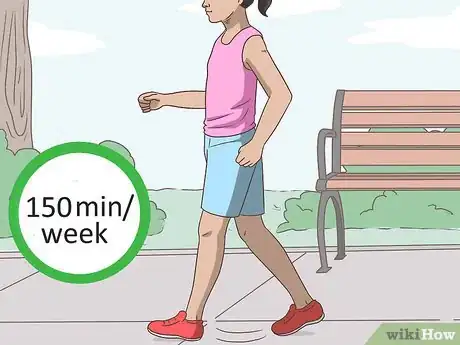
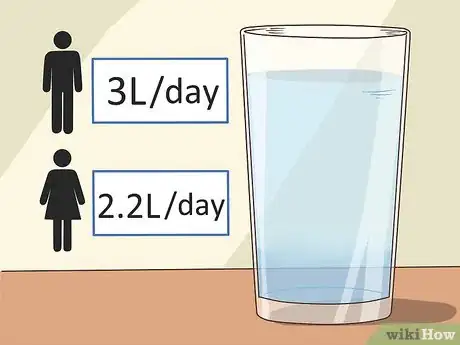
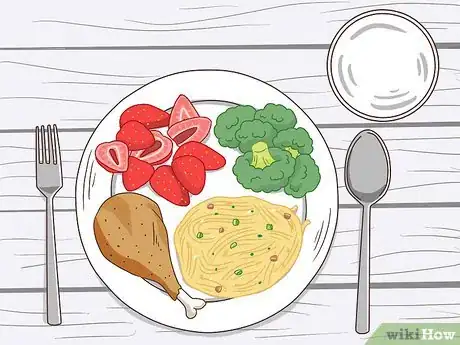
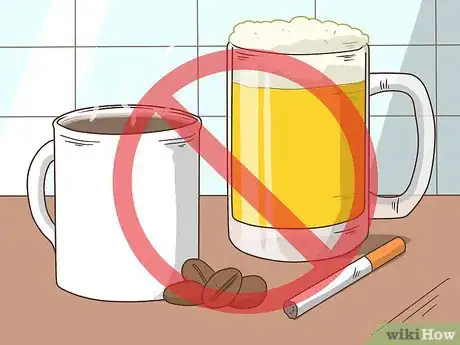
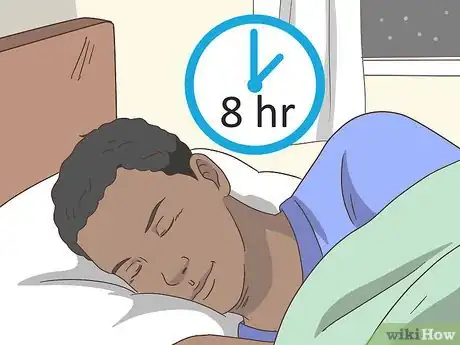

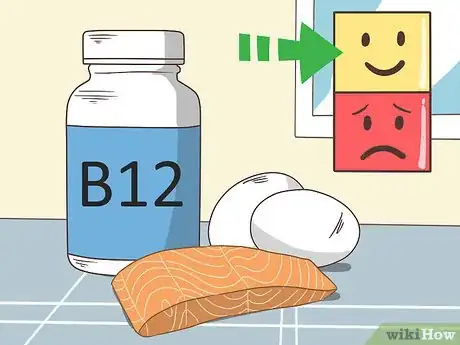
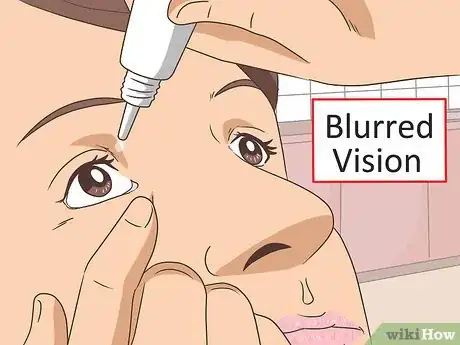
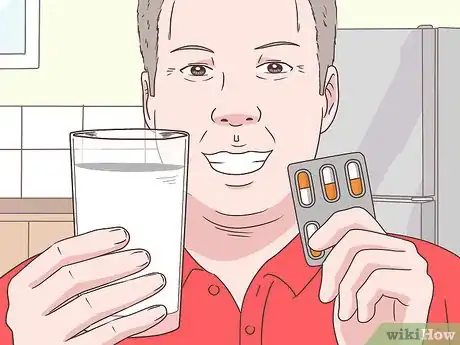
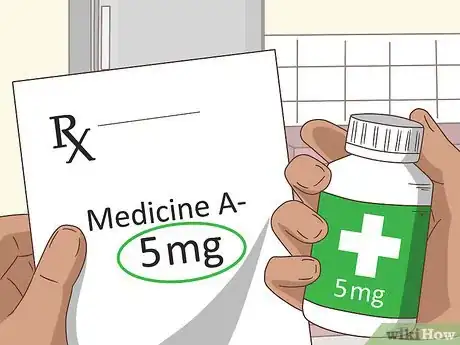
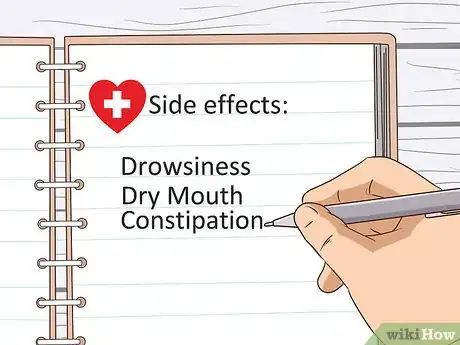
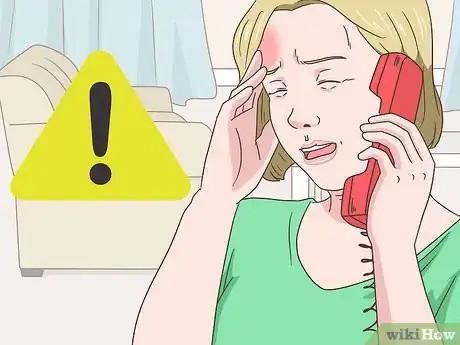


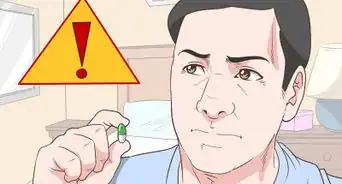

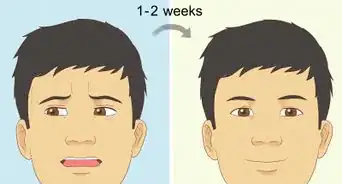

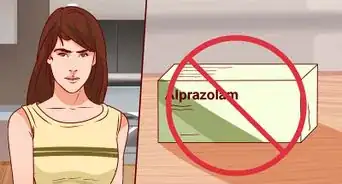










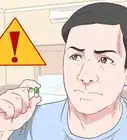

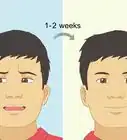




































Medical Disclaimer
The content of this article is not intended to be a substitute for professional medical advice, examination, diagnosis, or treatment. You should always contact your doctor or other qualified healthcare professional before starting, changing, or stopping any kind of health treatment.
Read More...